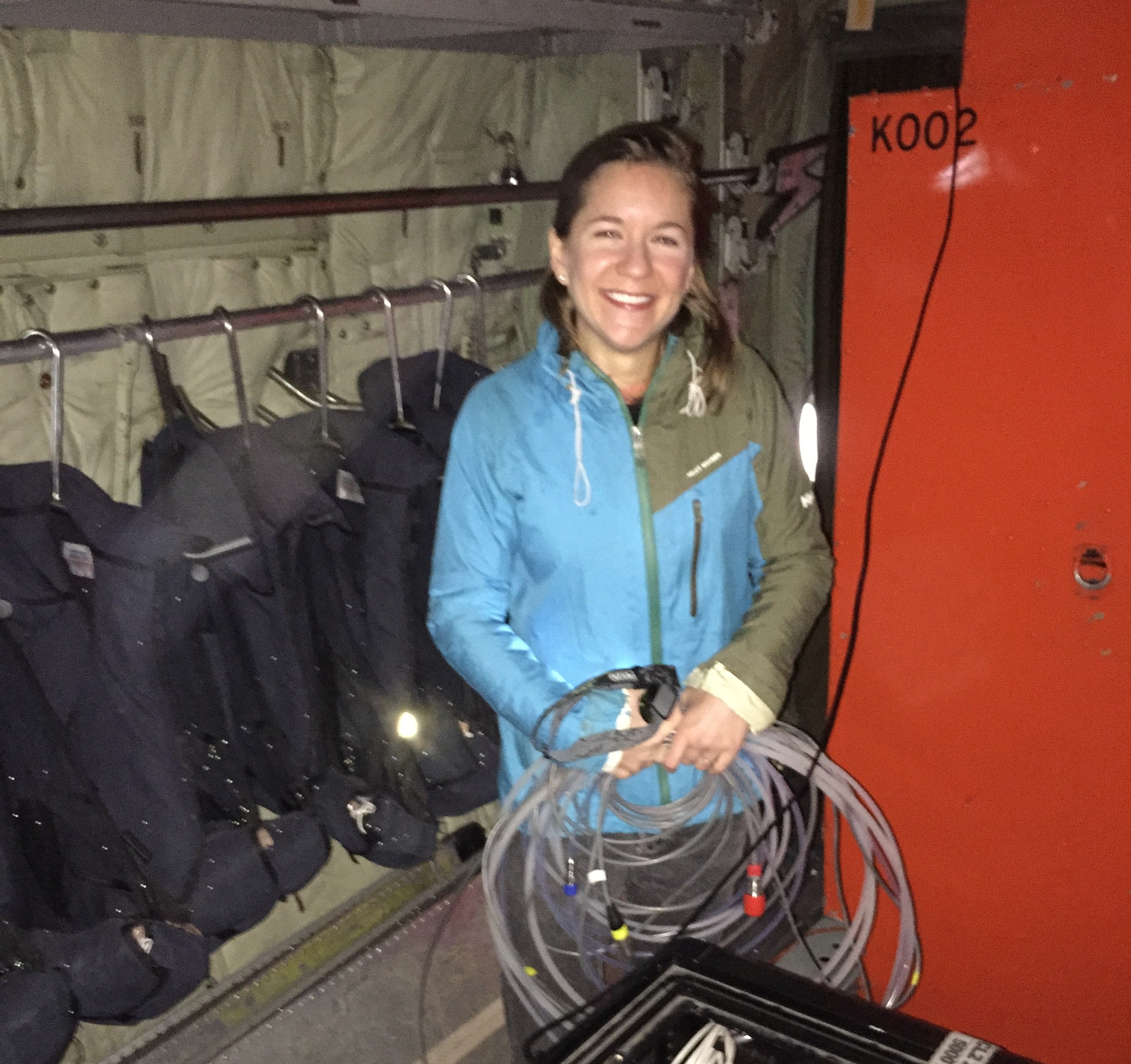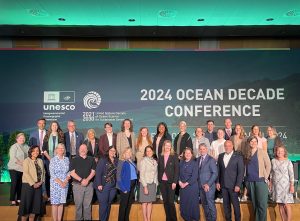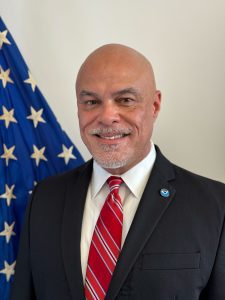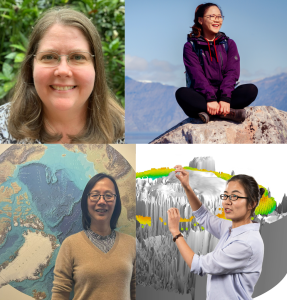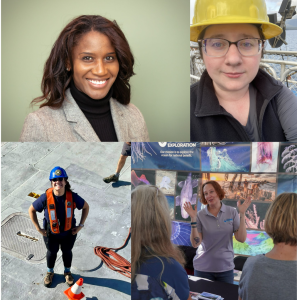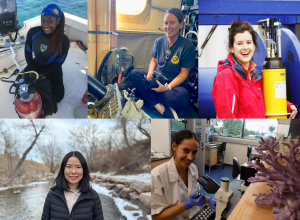Kathryn McKain is a research scientist at the Cooperative Institute for Research in Environmental Sciences (CIRES) at the University of Colorado and in the Global Monitoring Laboratory at NOAA in Boulder, Colorado. She works on a program that measures greenhouse gases in the atmosphere from aircraft. Her team runs a network of aircraft that collect air samples for long-term monitoring, and participates in shorter-term regional and global campaigns that are designed to investigate specific questions. Aircraft measurements of greenhouse gases offer uniquely powerful information on emissions and uptake processes, which are critical to projecting the trajectory of climate change and tracking the effectiveness of climate policies.
What is your typical day at NOAA like, and how has the pandemic changed your typical work day?
Before the pandemic, on a typical work day, I would go to the office and work on various projects and attend meetings. I might also spend time in the lab setting up and testing instruments for deployment, or travel to project sites to install measurement systems on aircraft and to participate in field campaigns. Since the pandemic, I am mostly working from home, but still periodically go to our lab to work on instruments and prepare for new deployments. Our research group is lucky to have been able to maintain access to our facilities and continuity of our greenhouse gas measurement programs, all while doing it safely.
What were some of the challenges you faced this year? Have you been able to adapt and if so, how?
I have a toddler and during the beginning of the pandemic her daycare was closed for 3.5 months. At the same time, at work, we decided to immediately orchestrate an aircraft campaign on the East Coast to measure the impact of the pandemic on anthropogenic emissions, all while maintaining social distancing and minimal access to our lab. This was a challenging time, to say the least, but we accomplished a successful campaign, and I gained some small insight and a huge appreciation for the impossible choices and circumstances that working parents have been faced with this year.
More recently I have led a new project to make greenhouse gas measurements from aircraft in tropical Africa, a region of the world for which there are almost no measurements and where satellites indicate there may be significantly larger than expected emissions. Direct atmospheric measurements can help evaluate the signals observed by satellites and determine the sources of carbon emissions.
Normally, we would go to the location to get a project like this started, but since we are not able to travel, we have executed the program entirely remotely. This has required more detailed planning, longer timelines, extra patience and persistence, and frequent communication with our operational partners in Africa. These partners are not scientists, so we have made sure to put extra effort into our communications about the steps needed for successful measurements.
On the one hand, it feels like a big accomplishment to have been able to start a program like this during the pandemic. On the other hand, I have also learned that there isn’t a perfect substitute for going in-person.
What experience or advice helps you when you’re faced with setbacks?
I believe that setbacks or constraints can ultimately lead to better outcomes by being forced to look at a problem differently and be creative in problem solving. For this reason, I try not to get too hung up on setbacks, but rather try to focus on ways to continue to make progress on our research goals.
What do you enjoy most about your work?
One of the best things about working in science is the opportunity to be creative in my work. I also find my colleagues to be exceptionally kind, smart, and dedicated people, which makes “going to work” every day a pleasure. Lastly, it is really cool to have the opportunity to do field work all over the world.
What do you hope to accomplish in the future? What do you hope the future for women in science looks like?
Our research group’s biggest aspiration is to start making greenhouse gas measurements from commercial airliners. This is the only economical way to greatly increase the density of observations, which are critical to projecting climate change and evaluating global mitigation efforts. We are currently working on several projects which will serve as stepping stones toward this big important goal.
In the future, I would like to see greater diversity of all kinds in geosciences. Even though when we look around at science, it may seem like there are only certain types of people, the truth is that there is no one way to be successful in science. All different types of people, with different backgrounds and strengths, can be successful in science. Scientific progress will only benefit from a greater diversity of perspectives and approaches.
